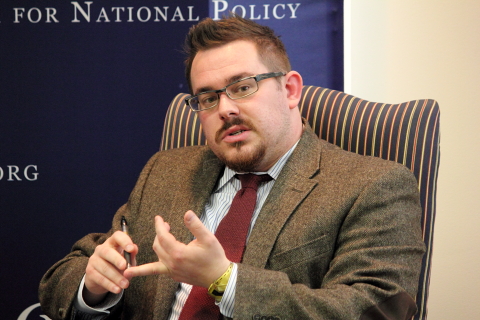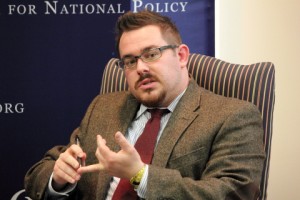
ASP Fellow Joshua Foust speaks at Center for National Policy Event
ASP fellow Joshua Foust was one of the panel members at a Center for National Policy event entitled “The End of the Afghan War: Talking with the Taliban and What Comes Next”. The other panel members included Michael O’Hanlon, a senior Brookings Institute fellow and former Assistant Secretary of Defense for Homeland Security Paul McHale.
One of the major talking points was the planned talks with the Taliban.
Concern was raised by the panel that the Taliban is a decentralized organization and that even if agreement is reached with one part of organization, there is no guarantee that the rest will follow along. Furthermore, negotiating with the Taliban will only solve part of the problem with an ineffective Afghan government and a deteriorating US-Pakistan relationship yet to be resolved. Also, it was noted that any negotiations with the Taliban would likely be overshadowed and affected by the looming 2014 NATO pullout date.
Another major question asked was what would be a reasonable standard for success for the Afghan war. Mr. O’Hanlon stated that Afghanistan should meet a “Colombia standard” where the insurgency is contained in part of the region but is not a major threat. The situations in Colombia and Afghanistan are comparable given the presence of narcotics in both regions and members of a neighboring country being complicit in supporting the insurgency ( i.e. Venezuela and Pakistan). However, the “Colombia standard” feels like an attempt to break even and given the resources that have been sacrificed in Afghanistan, justifying this standard to the American public would be difficult.
Mr. McHale mentioned that personal security was paramount and under the presidency of Hamid Karzai, it was not currently being provided. At first glance, personal security being the standard for success is an honorable idea. On the other hand, it is complicated to both define and achieve this standard without additional investment and time which may not be likely given the current recall of 23,000 US troops this summer. At today’s panel, Mr. Foust did not present his views on a reasonable standard of success but his opinion was laid out in an ASP white paper where he lists “deny Al Qaeda safe haven” and “build up the Afghan security forces and the government so they can take responsibility for their country’s future” as reasonable goals.
The overall sense of the discussion centered on the idea that the current situation in Afghanistan has improved in comparison to previous years. The situation in the northern and western part of Afghanistan has improved while the situation in eastern Afghanistan has deteriorated. Unfortunately, most of the discussion seemed to be focused on troop levels and military success rather than a political solution.
Mr. Foust said that
“Politics is the U.S.’s Achilles heel in Afghanistan. We, as a country, never put in the hard work to understand them at a local, regional, national, and international level”.
Despite some improvements, the consensus was that a reasonable standard of success cannot be achieved by NATO’s pullout date of 2014 without additional changes within the region. It was mentioned during the panel that stability in Afghanistan is vital and if that is true, then this discussion would like be only be one of many in the future.
Joshua’s paper on metrics for the US measuring success in Afghanistan can be found here.
Our 2010 report for our signature series “Are We Winning: Measuring the Progress in the Struggle Against al Qaeda and Associated Movements” can be found here.






